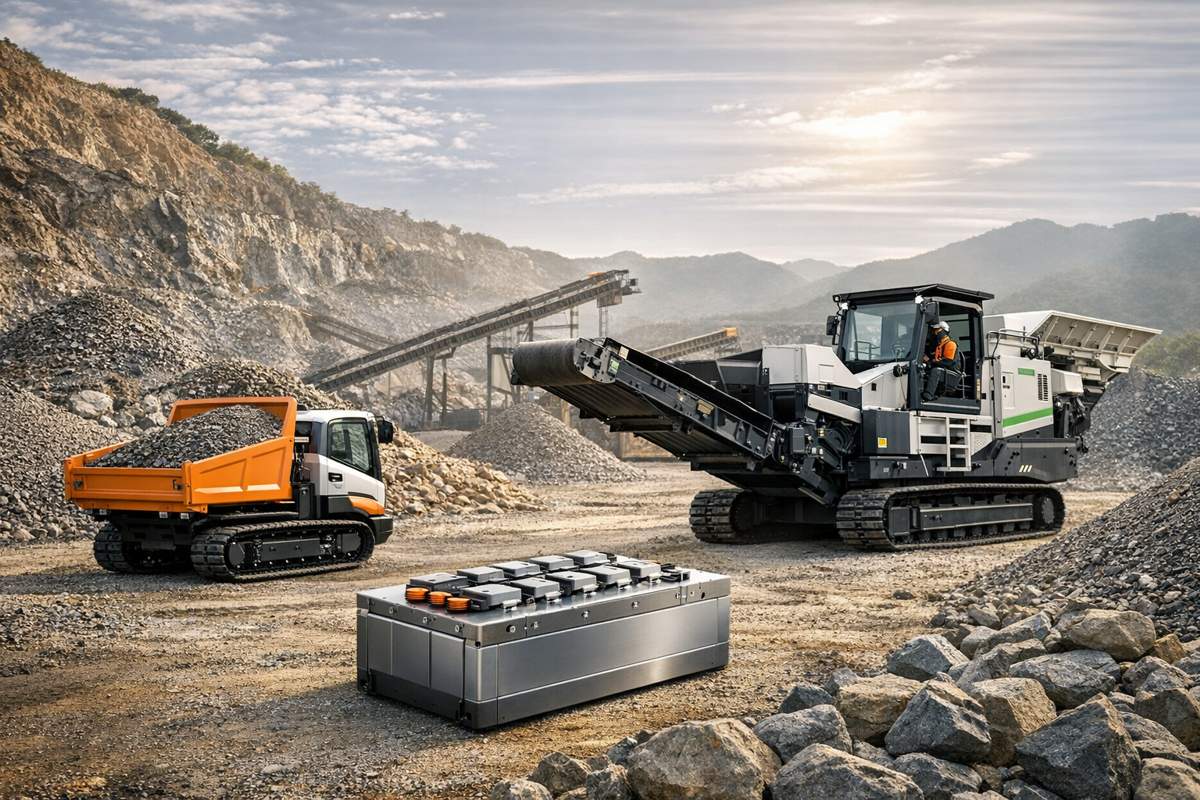Monterrey chosen as hub for Volvo’s new Heavy-Duty Truck Plant
In a strategic move to bolster its presence across North America, the Volvo Group has chosen Monterrey, Mexico, as the location for a state-of-the-art heavy-duty truck manufacturing plant.
Officially announced on 11th April, the plant is set to play a pivotal role in expanding the production capacity of Volvo Trucks and Mack Trucks, serving both U.S. and Canadian markets while also positioning itself as a critical supplier for Mexico and Latin America.
Slated to be fully operational by 2026, the Monterrey facility is a key component of Volvo’s broader strategy to strengthen its industrial footprint in the region.
Why Monterrey Stood Out
The decision to establish the new plant in Monterrey wasn’t made lightly. Situated near the U.S. border, Monterrey offers unmatched logistical advantages that are hard to overlook. With its robust infrastructure, mature supply chains, and proximity to key markets, Monterrey stands as a strategic location to efficiently serve southwestern and western U.S. regions while supporting growth in Mexico and Latin America. For a global company like Volvo, whose ambitions include enhancing its regional manufacturing capabilities, Monterrey ticked all the right boxes.
The logistical benefits of Monterrey extend beyond just geographical location. The city is already a well-established industrial hub with a workforce experienced in automotive manufacturing, an essential factor for Volvo as it scales up production. Moreover, Monterrey’s infrastructure is built to support high-volume transportation needs, with well-connected highways, ports, and rail networks that can seamlessly facilitate the movement of goods across borders.
Strengthening Supply Chains
Volvo’s expansion in North America doesn’t end with Monterrey. The Group has made it clear that growth in the region is a top priority, supported by a series of strategic investments aimed at increasing both production capacity and supply chain resilience. Among these moves is the acquisition of Commercial Vehicle Group’s (CVG) plant in North Carolina, announced on 1st August.
The $40 million (approximately SEK 410 million) deal will give Volvo control over the production of cabs for Mack’s heavy- and medium-duty trucks, adding another layer of flexibility to its U.S. operations. This acquisition is expected to close in the latter half of 2024 and underscores Volvo’s commitment to securing a stable and integrated supply chain.
A Technological Leap Forward
The Monterrey facility represents a massive investment of around $700 million (SEK 7.2 billion), marking it as one of the most significant expansions in the region’s heavy-duty truck manufacturing landscape. The plant is designed to be a comprehensive conventional vehicle assembly facility, featuring advanced cab body-in-white production and cutting-edge paint facilities. Once operational, it will be primarily focused on producing heavy-duty conventional vehicles for both Volvo and Mack brands, addressing growing demand in North America and beyond.
Unlike traditional assembly plants, Monterrey’s new facility will incorporate smart manufacturing technologies that align with Volvo’s sustainability goals. From automated production lines to energy-efficient processes, the plant is expected to set a new benchmark in the industry for operational efficiency and environmental stewardship. Volvo’s decision to go all-in on this high-tech approach reflects the Group’s broader ambitions of remaining at the forefront of innovation in the global trucking industry.
Monterrey’s Role in Latin American Markets
While much of the focus is on serving U.S. and Canadian markets, Monterrey is poised to become a crucial player in Latin America. With Mack Trucks already having a foothold in Mexico and expanding in the region, the Monterrey plant will play a key role in meeting rising demand across Latin America. By leveraging local manufacturing capabilities, Volvo can not only cut down on delivery times but also adapt its product offerings to better suit the specific needs of Latin American customers.
The Monterrey plant’s role goes beyond just production; it will also act as a central node in Volvo’s Latin American operations, helping to coordinate sales, service, and parts distribution across the region. The location’s strategic positioning thus aligns with Volvo’s overarching goal of becoming a dominant player in emerging markets.
The Future of North American Truck Manufacturing
Volvo’s commitment to North America signals a broader trend in the global manufacturing landscape: the increasing importance of regionalisation. As global supply chains face unprecedented challenges—from geopolitical tensions to disruptions caused by pandemics—the ability to manufacture closer to key markets has become a strategic imperative. By setting up shop in Monterrey, Volvo isn’t just expanding capacity; it’s creating a more agile, resilient production network capable of responding quickly to market fluctuations.
The plant’s focus on heavy-duty trucks for both Volvo and Mack also reflects a growing demand in the North American market for robust, reliable vehicles, driven by infrastructure developments and increased e-commerce activity. In a sector where timely delivery and operational efficiency are non-negotiable, having a manufacturing hub like Monterrey could give Volvo a competitive edge.
A Positive Outlook for Regional Economic Growth
The ripple effects of this investment will likely be felt far beyond Volvo’s immediate operations. Monterrey, already a thriving industrial city, stands to benefit significantly from the influx of capital, technology, and skilled jobs. For local suppliers, the presence of a global giant like Volvo opens up new avenues for growth and collaboration, while for the broader community, it brings opportunities for education, upskilling, and socio-economic development.
Volvo’s decision to build in Monterrey is a testament to Mexico’s growing appeal as a hub for advanced manufacturing. As companies increasingly look for alternatives to traditional manufacturing bases, Mexico’s combination of proximity to the U.S., competitive labour costs, and strong industrial base make it an attractive choice. The Monterrey plant could very well become a model for other international companies eyeing expansion in North America.
A Strategic Move with Long-Term Impact
In summary, Volvo Group’s selection of Monterrey for its new heavy-duty truck plant is more than just another expansion—it’s a strategic masterstroke designed to enhance the company’s competitive position across North America and Latin America. With its eyes firmly set on growth, innovation, and sustainability, Volvo is making it clear that the future of truck manufacturing lies in regional hubs like Monterrey that offer the perfect blend of logistical efficiency, skilled labour, and market access.
As the industry moves towards greater localisation and resilience, Monterrey’s new role in Volvo’s ecosystem is likely just the beginning of a larger transformation across the North American manufacturing landscape.




















